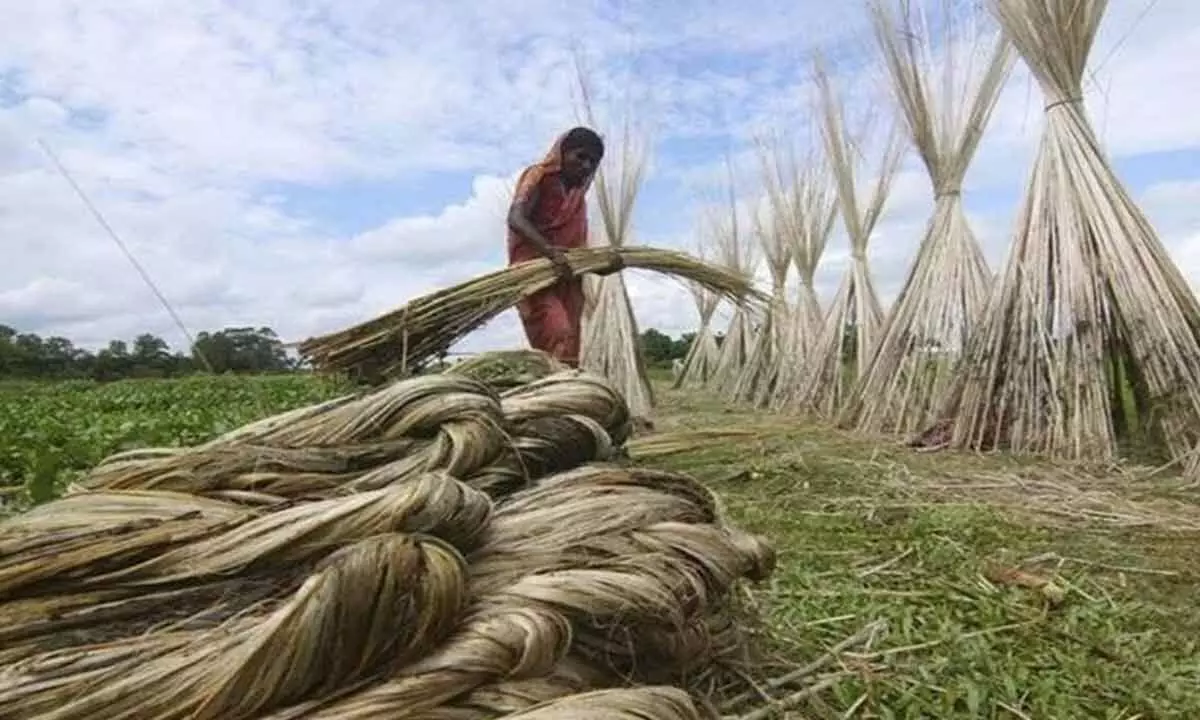Hike in MSP is a welcome pre-season boost for jute farmers
The Centre has recently announced a six per cent hike in jute minimum support price (MSP) for the 2023-24 season compared to the previous season, set at Rs 5,050 per quintal for raw jute.
image for illustrative purpose

The Centre has recently announced a six per cent hike in jute minimum support price (MSP) for the 2023-24 season compared to the previous season, set at Rs 5,050 per quintal for raw jute. However, the increase is seven per cent lower than the current market prices, which are hovering around Rs 5,200-5,400 per quintal in the producing areas, indicating that the government's role in procurement may be limited in the next season if prices remain high. The Union government’s MSP increase is expected to benefit four million farmers and another 0.4 million workers associated with the jute industry across the country. The move will ensure a return of 63.2 per cent over the all India weighted average cost of production. The hike is consistent with the government’s policy of setting MSPs at a level that is at least 1.5 times the average cost of production, as declared in the Budget 2018-19.
The Jute Corporation of India (JCI) will undertake price support operation if market prices fall below MSP, the ministry of agriculture and farmers welfare has clarified.
The decision to hike jute MSP taken during a meeting of the Cabinet Committee on Economic Affairs is based on the recommendations of the Commission for Agricultural Costs and Prices (CACP). The MSP of Raw Jute (TD-3 equivalent to earlier TD-5 grade) has been fixed at Rs 5,050 per quintal for the upcoming season. It is worth remembering that India, along with Bangladesh, is one of the world's largest jute producers, having India produced 95 lakh bales of 170 kg of jute in 2022-23. This figure is up from 90 lakh bales in 2021-22, 60 lakh bales in 2020-21, 68 lakh bales in 2019-20 and 72 lakh bales in 2018-19. One will also have to keep in mind that jute, a natural fibre used for packaging, faces tough competition from synthetic fibre, which offers cheaper packaging solutions. However, synthetic packaging is a major contributor to non-degradable waste and the Centre is making efforts to promote eco-friendly jute packaging.
The Jute Packaging Materials (for compulsory use in packaging commodities) Act, 1987, stipulates certain commodities to be packed in jute. Significantly, in the last few years, the government has kept reservations of 100 per cent and 20 per cent for food grains and sugar respectively to be packaged in jute bags. The Centre and state governments procure 70 per cent of the total production of jute goods for packaging of food grain. Interestingly, even after the latest decision to undertake price support operations, the JCI will continue to be the central government’s nodal agency. If any losses are incurred during such operations, they will be fully reimbursed by the central government. The move is expected to encourage jute farming and ensure that farmers receive a fair price for their produce, which is the ultimate objective of all the moves initiated by the Centre.

